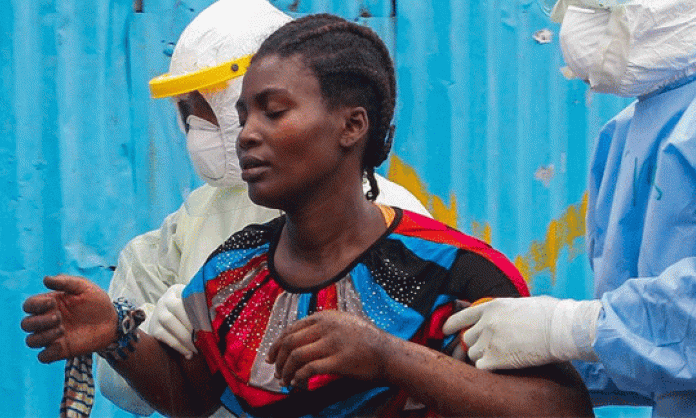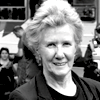There have been countless appalling acts in the world’s response to Ebola.
Australia is halting all migration from Ebola-affected countries and cancelling all non-permanent visas. The British government is still deporting people to Liberia, Sierra Leone and Guinea even though the Foreign Office advises “against all but essential travel” to those countries.
One of the most disgusting examples is provided by Blue String Ventures. It owns or “squats” on domain names, such as “Ebola.com”, but doesn’t use them. Instead it holds on to them until the “right time” and flogs them off to the highest bidder. It recently sold Ebola.com for $200,000.
In an interview with the Washington Post, Blue String CEO John Schultz explained that his business is largely a waiting game and that the deadlier an epidemic is in the West, the more bucks it could rake in: “Our domain birdflu.com is worth way more than Ebola.com. We’re definitely holding onto that one for the event.”
But the real obscenity comes when you look at the overall response. There’s little money to be made out of vaccines or other drugs to save the lives of Africans. As a result, they are being left to die. Profits come from drugs to treat the diseases affecting the rich or, as one writer put it, “giving rich white men erections”.
A study in Lancet, the journal of the British Medical Association, found that of the 336 new drugs developed in the first decade of the 21st century, only four were for what are known as “neglected tropic diseases” – three for malaria and one for diarrhoea.
The satirical web newspaper The Onion summed it up: “Ebola vaccine at least 50 white people away”.
Ebola, contrary to all the hysteria and myths circulating, is difficult to transmit when basic infection prevention practices are in place. “Outbreaks are inevitable”, says Larry Brilliant, who helped eradicate smallpox 40 years ago, “pandemics are optional”.
The three countries most afflicted by Ebola are those with some of the lowest public investment in health care and public health in Africa. They have been wracked by war, and then by a surge in foreign investment in highly profitable mining industries.
Nigeria, Senegal and the Democratic Republic of the Congo, however, have all controlled the spread of the virus. Nigeria relied on methods used in a recent campaign against polio, making house visits and quickly identifying those in contact with disease carriers. There have been no reported cases since the end of September.
The only effective solution, as the World Health Organisation reports, is improving health services – whether it’s in the poorer nations or the West.
‘I’m a West African – not a virus!’
The gay community has spoken out against the way Ebola has been stigmatised. “We have not forgotten how HIV/AIDS was at first largely ignored when it appeared to affect only marginalised communities or the stigma generated once fear of the virus took hold in the larger populations”, said Jennifer Flynn, the executive director of VOCAL-NY, a grassroots organisation that works with people affected by HIV/AIDS.
And, as with HIV/AIDS, Ebola has exposed the weaknesses in the West’s health care systems. But instead of owning up to the problems, authorities in the US in particular have been quick to blame the victims instead of budget cuts and a privatised system that measures its success in profit rates.
But the US National Nurses Union , described by one reporter as a “brass-knuckled union”, has hit back. Spokesperson Charles Idelson said, “Some of these hospitals are far more concerned with their profit margins than with safety.”
One nurse commented that the Dallas hospital where the two Ebola-infected nurses were working was on “a learning curve”. Idelson was more critical, noting the hospital’s $152 million profit last year: “Surely the hospital could have afforded to have better protocols in place.”
There have also been strikes in Liberia and Sierra Leone to demand better provisions and a rise in health workers’ “risk allowance”. Health care workers in Spain, where one nurse tested positive for Ebola, have protested against budget cuts that have put them at risk.
And, in response to the hysteria and stigmatisation of West Africans in the US, people from the Liberian, Guinean and Sierra Leonean communities in Philadelphia took to the streets, staging a noisy, drum-thumping demo, with slogans such as “I’m a West African – not a virus”.
As one of the organisers said, “We’re fighting not just Ebola, but the rumours about Ebola.”











